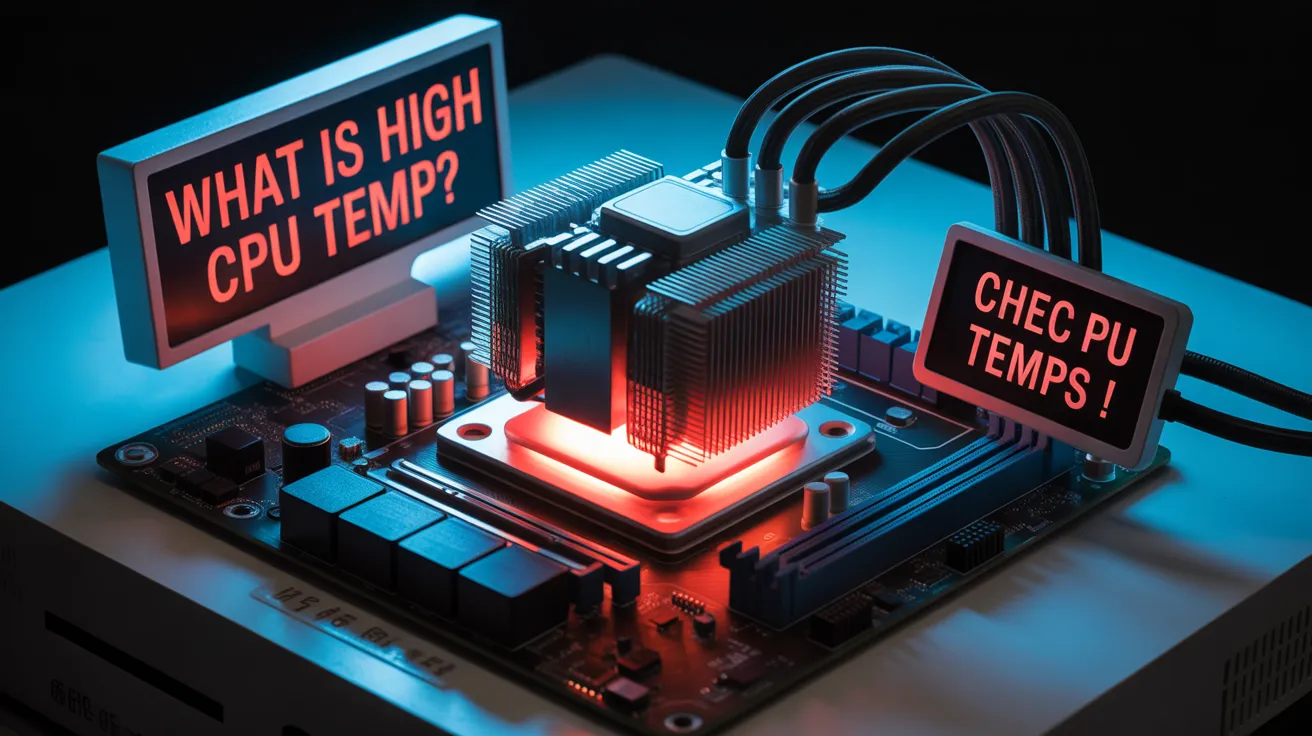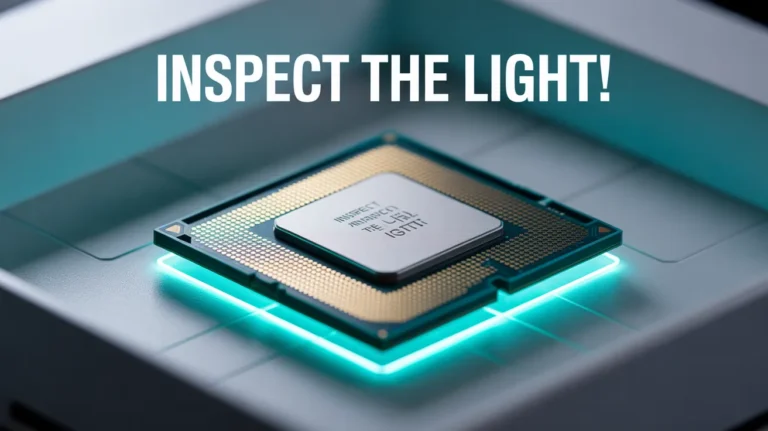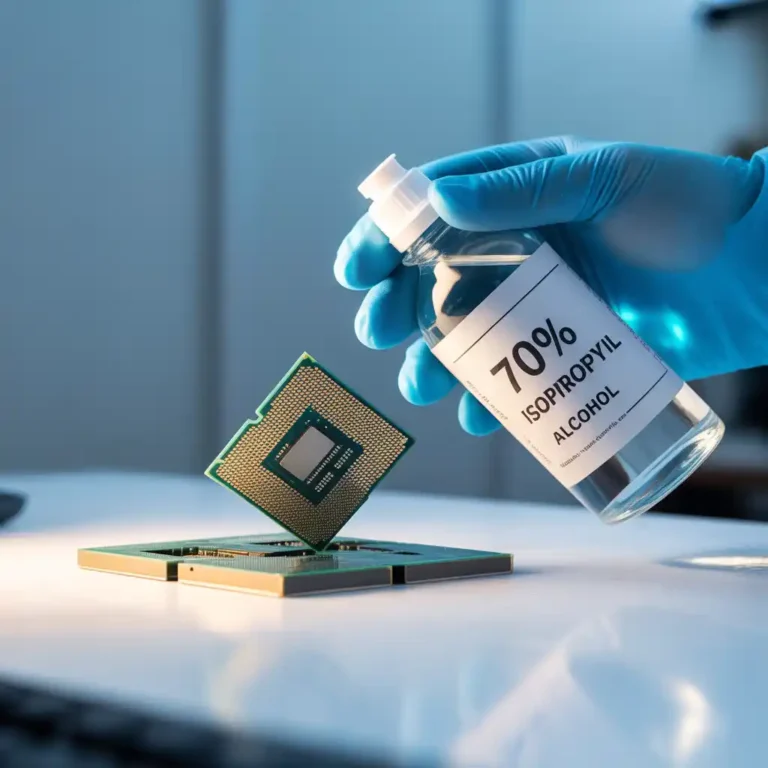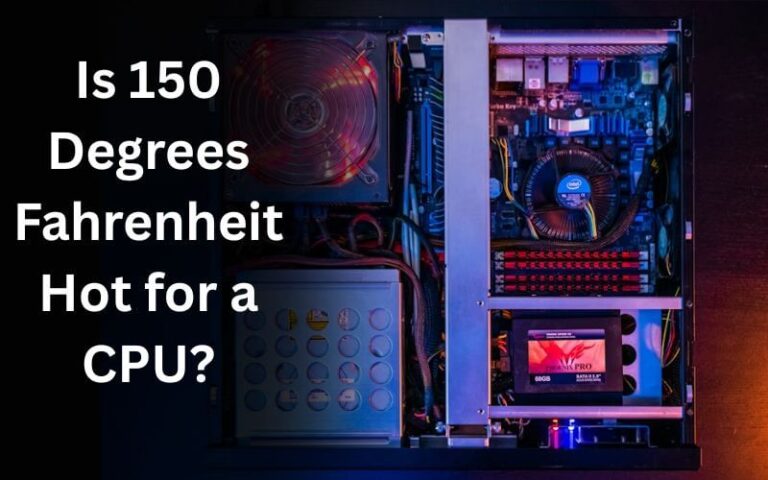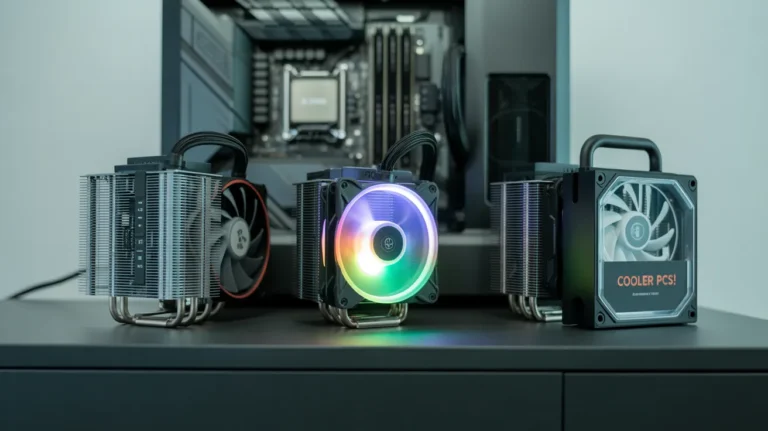What is high CPU temp? Check CPU Temps!
A high CPU temp means your processor is getting too hot, usually above 80 90°C. This can slow down your PC, damage components, or even cause your system to crash. Always keep your CPU cool by maintaining good airflow and cleaning your fans regularly.
In this guide, we will explain it in simple words so you can protect your PC and keep it running fast and smoothly.
Also Read: Is the CPU on the motherboard? Complete Guide 2025!
What Causes High CPU Temperatures?
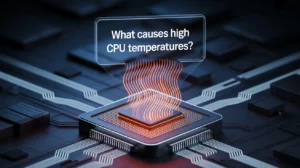
High CPU temperatures happen when the processor works too hard or doesn’t cool down properly. Common reasons include:
- Heavy tasks like gaming, video editing, or running many apps at once.
- Dust buildup inside the PC blocks airflow.
- Bad airflow in the case or poor fan setup.
- Old or dried thermal paste between the CPU and cooler.
- Overclocking, which makes the CPU run faster than normal.
- Hot room temperature also affects cooling.
Also Read: How Much CPU Usage is Normal? Find Out What’s Normal
What is Considered a High CPU Temperature?
A high CPU temperature usually means the processor is getting too hot and may not work properly. In most cases:
- 60–70°C is normal during light to medium work.
- 70–85°C is hot but still okay for heavy tasks like gaming.
- Above 85°C is too high and can be risky.
- Over 90°C can damage the CPU if it stays that hot for long.
Also Read: Can I use a CPU cable for a GPU? Complete guide to CPU!
How to Monitor CPU Temperature
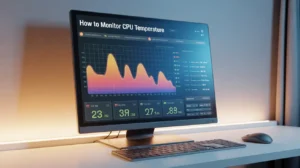
You can easily check your CPU temperature using free tools. Here are simple ways:
- Use software like Core Temp, HWMonitor, or Speccy. These show live CPU temps.
- Open BIOS or UEFI during startup to see the temperature. Press Delete or F2 when the PC starts.
- Some motherboards have their apps to check CPU temps.
- Gaming laptops or PCs may also show temps in their control center.
Also Read: Does Parsing CSV Files Hit the CPU Hard? Find Out Now
Common Myths About High CPU Temperatures
Many people believe things about CPU heat that aren’t true. Here are some common myths:
- All high temperatures are bad. Some CPUs are made to handle heat up to 90°C safely.
- You always need more fans. Good airflow matters more than just adding fans.
- Overclocking always causes overheating. If done right, overclocking can be safe.
- Thermal paste must be changed often. It lasts for years unless removed.
- CPU temps stay the same all the time. Temps change with your workload.
Also Read: Can I use 70% alcohol to clean the CPU? Use Alcohol Right!
How to Prevent High CPU Temperatures
You can keep your CPU cool by following simple steps:
- Clean your PC regularly to remove dust from fans and vents.
- Make sure your case has good airflow with intake and exhaust fans.
- Apply fresh thermal paste if the old one is dry or worn out.
- Avoid blocking air vents. Don’t place your PC in tight or hot spaces.
- Use a good CPU cooler, especially if you play games or do heavy work.
- Keep your room cool, as room temperature affects CPU heat.
Also Read: Can a CPU Be Too Cold – A Complete Guide for 2025!
Top Tips to Keep Your CPU Cool
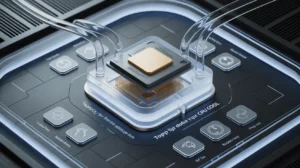
Here are some easy tips to keep your CPU temperature low:
- Use a high-quality CPU cooler for better heat control.
- Install more case fans to improve airflow.
- Keep your PC clean by removing dust from fans and vents.
- Apply thermal paste properly between the CPU and cooler.
- Close unused apps to reduce CPU workload.
- Place your PC in a cool, open area for better ventilation.
- Don’t overclock if you don’t have proper cooling.
Also Read: Is 150 Degrees Fahrenheit Hot for a CPU? [Quick Answer]
When to Worry About High CPU Temperatures
You should start worrying if your CPU stays too hot for a long time. Here are signs to watch:
- If your CPU stays above 85 to 90°C during normal use.
- Your PC suddenly shuts down or restarts, which may be from overheating.
- Fans are always loud, meaning the system is trying hard to cool down.
- Games or apps crash often without a clear reason.
- You feel your PC is slowing down, even with light tasks.
Also Read: Is 4000 RPM Too Low for a CPU Fan? Explained
What Activities Make Your CPU Run Hot?
Certain activities make your CPU work harder and get hotter. These include:
- Gaming, especially with high-quality graphics.
- Video editing or rendering which uses a lot of processing power.
- Running multiple apps at the same time.
- Overclocking speeds up the CPU beyond normal settings.
- Heavy web browsing, with many tabs open.
- Running background programs like antivirus scans.
Also Read: Is 50 Degrees Celsius Hot for a CPU? A Detailed Guide
How High CPU Temps Affect Your PC
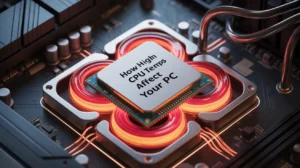
High CPU temperatures can cause many problems for your PC. Here’s how they affect it:
- Slower performance: Your CPU may slow down to stay cool.
- System crashes: The PC can freeze or restart suddenly.
- Shorter lifespan: Heat can damage CPU parts over time.
- More fan noise: Fans run faster to cool the system.
- Damage to other parts: Heat can spread to the motherboard or RAM.
Also Read: What should CPU voltage be? Stay Within Limits!
How to Detect CPU Temperature Spikes
To find sudden jumps in CPU temperature, follow these simple steps:
- Use tools like HWMonitor, Core Temp, or MSI Afterburner, which show real-time temperature changes.
- Watch for fast jumps in temperature, especially when opening apps or games.
- Check for high temperatures when your PC is idle, which may mean a problem.
- Look at temperature graphs in the monitoring software to see spikes over time.
- Set alerts in some tools to warn you if the temperature gets too high.
Also Read: When to upgrade the CPU? Complete Guide 2025!
FAQs:
1. How does ambient temperature affect CPU heat?
Hot room temperature can raise CPU heat because the air around your PC is already warm. This makes it harder for your system to cool down.
2. Why do some CPUs run hotter than others?
Some CPUs have more power or a smaller size, so they create more heat. Others may not have good cooling systems.
3. Can dust cause high CPU temperatures?
Yes, dust can block airflow and fans, which stops your CPU from cooling properly. This makes it hotter over time.
4. Is it safe to use a PC with a hot CPU for short tasks?
Yes, if the CPU is not too hot and you’re doing light work, it’s usually safe. But long use can still be risky.
5. Does every high CPU temperature mean there’s a problem?
No, sometimes high temps are normal, like during gaming or updates. But constant heat may show a cooling issue.
Also Read: How much power does a CPU use? Check Power Usage!
Conclusion:
High CPU temperature means your processor is getting too hot, which can slow down your PC or damage it. But not all heat is bad; some heat is normal during heavy tasks. You can avoid problems by keeping your PC clean, checking temps often, and using good cooling. A cool CPU means better performance and longer life.
Also Read: How to check if the CPU is overclocked- Check CPU Speed!

